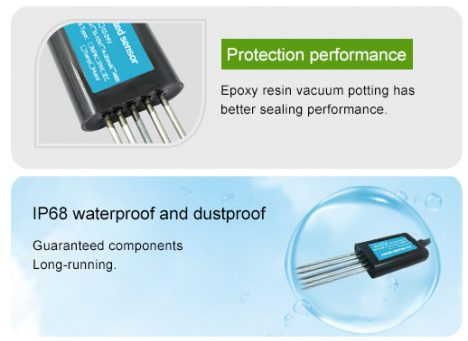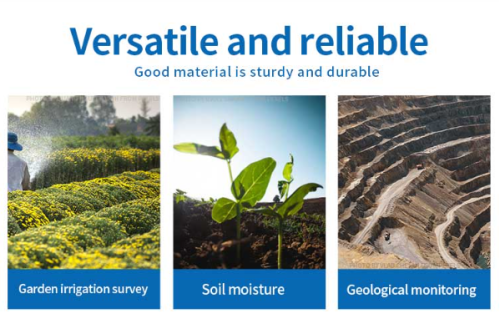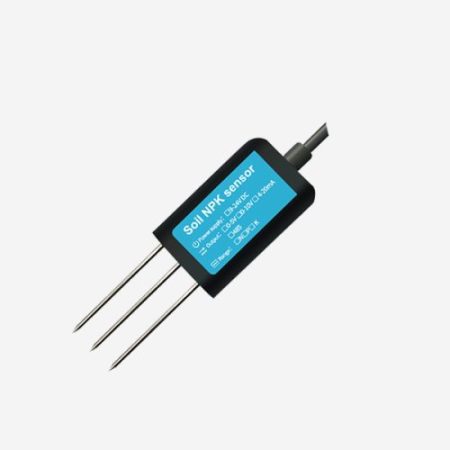Soil NPK sensors
NPK sensor are at the forefront of modern agricultural practices, revolutionizing the way farmers monitor and manage essential nutrients in soil. These sensors play a crucial role in optimizing fertilizer application, enhancing crop productivity, and promoting sustainable nutrient management. This article delves into the significance of NPK sensors, their applications in agriculture, technological advancements, and the impact of these innovations on sustainable resource management.
Importance of NPK Sensors
Soil NPK sensors are instrumental in providing real-time data on the levels of essential nutrients – nitrogen (N), phosphorus (P), and potassium (K) – in soil, which is essential for making informed decisions regarding fertilizer application, crop management, and environmental conservation. By accurately measuring nutrient levels, these sensors enable farmers to optimize fertilizer use, improve crop yields, and minimize environmental impact.
Applications of NPK Sensors

Precision Fertilization: NPK sensors monitor soil nutrient levels and optimize fertilization in precision agriculture. By providing precise data on nutrient concentrations, these sensors enable farmers to tailor their fertilization practices, leading to efficient nutrient use and improved crop yields.
Soil Health Monitoring: NPK sensors play a crucial role in monitoring soil health by assessing the availability of essential nutrients. This monitoring is essential for understanding soil fertility, nutrient deficiencies, and the overall health of agricultural land.
Environmental Conservation: NPK sensors aid in minimizing nutrient runoff and leaching, which can contribute to water pollution. By optimizing fertilizer application based on real-time nutrient data, these sensors support sustainable nutrient management and environmental protection.
Crop Nutrient Uptake Monitoring: NPK sensors provide valuable insights into the nutrient uptake patterns of crops, allowing farmers to adjust fertilizer application to meet the specific nutrient requirements of different crops at various growth stages.
Technological Advancements in NPK Sensors
The evolution of NPK sensors has been marked by significant technological advancements, leading to the development of highly accurate, reliable, and user-friendly monitoring solutions.

Sensor Fusion Technology: Advanced NPK sensors incorporate sensor fusion technology, which combines multiple sensors to measure not only N, P, and K, but also other important parameters such as pH, electrical conductivity, and organic matter content, providing a comprehensive understanding of soil fertility.
Wireless Connectivity: Modern NPK sensors are designed to be integrated into wireless networks, enabling real-time data transmission and remote monitoring of nutrient levels across agricultural fields.
Data Integration and Analytics: The integration of NPK sensor data with advanced analytics and modeling tools facilitates the interpretation of complex datasets, enabling the prediction of nutrient trends and the optimization of fertilizer management strategies.
Impacts on the environment and agricultural practices
The widespread adoption of NPK sensors has had a profound impact on environmental sustainability and agricultural practices.

Efficient Nutrient Use: NPK sensors enable precise monitoring of nutrient levels, leading to optimized fertilizer application and reduced nutrient wastage, which contributes to environmental protection and resource conservation.
Enhanced Crop Yields: By providing real-time data on nutrient levels, sensors support the optimization of fertilizer practices, leading to improved crop yields and resource efficiency.
Reduced Environmental Impact: NPK sensors help in minimizing nutrient runoff and leaching, which can have detrimental effects on water quality and ecosystem health, thereby contributing to environmental conservation.
Sustainable Nutrient Management: NPK sensors promote sustainable nutrient management practices by ensuring the efficient use of fertilizers, reducing the risk of nutrient imbalances, and preserving soil fertility.
Future Developments and Challenges
Looking ahead, the continued advancement of NPK sensor technology presents opportunities and challenges.

Integration with Precision Farming Systems: NPK sensors are expected to be integrated into precision farming systems, enabling real-time decision support for precise nutrient management and sustainable agriculture.
Sensor Calibration and Accuracy: Addressing the challenges associated with sensor calibration, accuracy, and long-term stability will be crucial to ensuring the reliability and effectiveness of NPK sensor data.
Nutrient Monitoring in Controlled Environments: NPK sensors will play a vital role in monitoring nutrient levels in controll
Conclusion
In conclusion, NPK sensors are indispensable tools for monitoring and managing essential nutrients in soil, supporting environmental sustainability, efficient nutrient use, and agricultural productivity. As technology continues to advance, the integration of innovative sensor technologies and data analytics will further enhance the capabilities of NPK sensors, contributing to the sustainable management of nutrient resources and the resilience of agricultural systems.
